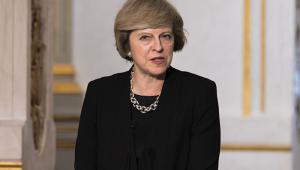Theresa May yesterday pledged better access to education, training and support across communities, as part of “an overhaul of society’s approach to mental illness”, which is focused on prevention.
She said the “wide-ranging package of measures would make sure people have the confidence and skills they need to identify mental health issues before they become critical, particularly in young people”.
She added that the announcement would mean schools, social workers, local authorities and healthcare services will receive extra support to make sure people know how to promote good mental health in the same way that they look after physical wellbeing.
The prime minister said support would include training for all new teachers, updated statutory guidance to make clear schools’ responsibilities to protect children’s mental wellbeing, and all 1.2 million NHS staff being encouraged to take suicide prevention training.
She added that support for school mental health leads would also be provided, so they could help children struggling with self-harm and risk of suicide; and that extra funding would be made available to support local authorities in “strengthening and delivering local suicide prevention plans so that they better meet the needs of the people they serve”.
“Too many of us have seen first-hand the devastating consequences of mental illness, which is why tackling this burning injustice has always been a personal priority for me,” the prime minister said, launching the initiative at a London school. “But we should never accept a rise in mental health problems as inevitable. It’s time to rethink how we tackle this issue, which is why I believe the next great revolution in mental health should be in prevention.”
The prime minister added that further plans to drive a step-change in public awareness around mental health would include a new national awareness campaign called Every Mind Matters, due to launch in October.
From 2020, parents will also get access to targeted advice on how to deal with issues like stress, online bullying and self-harm, she said.
As part of the prevention agenda, the prime minister also announced £1 million of funding for the Office of Students to run a competition to find innovative new ways to support mental health at universities and colleges, and new research to build evidence on the best ways to support children who have faced adversity, abuse and neglect.
Responding to the launch of the initiative, the Local Government Assocation urged the government to go further in its overhaul of mental health services: “We support plans by the government to train teachers and social workers in spotting signs of mental ill-health, as well as the new mental health units that schools can refer to,” said Ian Hudspeth, chair of the LGA’s Community Wellbeing Board.
However, we still need on-site school counselling services in every school and increased investment in the school nurse workforce, as this would help ensure children can access the support as early as they need without being turned away, as well as reduce overall demand on specialist services.
“"However to achieve true parity of care between mental and physical health, we need a root and branch overhaul of mental health services, which focuses on prevention and early intervention, particularly for children and young people.”
Dr Mary Bousted, joint general secretary of the National Education Union, echoed that view, calling the measures merely a “sticking plaster”.
“The aspiration to train school staff to spot signs of mental illness amongst pupils is welcome, but it will amount to little more than a sticking plaster,” she said. “If the Prime Minister is genuine about wanting to focus on prevention, then a cross-Government strategy on tackling poverty and inequality is needed.
The ‘exam factory’ culture of testing, driven from Whitehall, is one significant cause of anxiety and low self-esteem among young people. It is why the NEU has been urging government to put child wellbeing at the heart of education policy.”











